- Home
- Hilary Mantel
How Shall I Know You? Page 2
How Shall I Know You? Read online
Page 2
I felt a sudden wash of nausea. The migraine angel leaned hard on my shoulder and belched into my face. I wanted to sit down on the bed. But courtesy demanded something. The child had put down my bag, and without it she looked even more unbalanced, her vast hands hanging, her foot scuffling the floor. What should I do? Ask her to stay for a cup of tea? I wanted to offer her money but I couldn’t think what would be enough for such a feat of porterage, and besides I thought that I might be further in debt to her before I left the place, and perhaps it was best to run up a tab.
I FELT SAD, as I stood in the doorway, waiting for Mr. Simister. My nose ran a little. When Mr. Simister arrived I said, “I have hay fever.”
“We are actually close,” he said; then, after a long pause: “To the venue.” We could walk, he was saying. I shrank back into the doorway. “Perhaps in view of your ailments,” he said. I shrank inside: how did he know my ailments? “Though, a night like this,” he said. “Damps the pollen down. I’d have thought. Somewhat.”
The lecture was to be given at what I can only describe as a disused school. There were school corridors, and those polished shields on the wall that say things like “JK Rowling, Cantab 1963.” There was a smell of school, residual—polish and feet. But there were no signs of actual, present-day pupils. Perhaps they had all fled into the hills, and left it to the Book Group.
Despite the rain, the members had come out in heroic numbers: twenty, at least. They were widely dispersed through the long rows, with tactful gaps between: in case the dead ones rolled in late. Some few had squints and others sticks, many had beards including the women, and the younger members—even those who appeared sound at first glance—had a glazed unfocused eye, and bulging parcels under their seats, which I knew at once would be the manuscripts of sci-fantasy novels, which they would like me to take away and read and comment on and post back to them—“In your own time, of course.”
There is a way of looking, and then there is a professional, impersonal, way of looking. I settled myself behind a table, took a sip of water, flicked through my notes, checked the location of my handkerchief, raised my head, scanned the room, attempted a theoretical sort of eye contact, and swept a smile from side to side of the audience: looking, I am sure, like one of those nodding dogs you used to see in the back of Austin Maestros. Mr. Simister got to his feet; to say “he stood up” would give you no notion of the impressive performance it really was. “Our guest has not been well in the last week, you will be as sorry as I am to learn, hay fever, so will deliver her lecture sitting down.”
I felt a fool already, a greater fool than I needed to feel. Nobody would sit down because they had hay fever. But I thought, never explain. I rattled smartly through my performance, throwing in the odd joke and working in one or two entirely spurious local allusions. Afterward there were the usual questions. Where did the title of your first book come from? What happened to Joy at the end of Teatime in Bedlam? What, would I say, looking back, were my own formative influences? (I replied with my usual list of obscure, indeed nonexistent Russians.) A man in the front row spoke up: “May I ask what prompted your foray into biography, Miss Er? Or should I say Ms.?” I smiled weakly, as I always do, and proffered “Why don’t you call me Rose?” Which created a little stir, as it is not my name.
On the way back Mr. Simister said that he considered it a great success, more than somewhat, and was sure they were all most grateful. My hands were clammy from the touch of the science fantasists, there was a felt-tip mark on my cuff, and I was hungry.
‘By the way, I expect you have eaten,’ Mr. Simister said. I sank down in my seat. I didn’t know why he should expect anything of the sort, but I made an instant decision in favor of starvation, rather than go to some establishment with him where the members of the Book Group might be lurking under a tablecloth or hanging from a hat stand, upside down like bats.
I stood in the hall of Eccles House, and shook drops of water from myself. There was an immanent odor of aged cooking oil. Supper over, then: all chips fried? An indoor smog hovered, about head height. From the shadows at the foot of the stairs, the small girl materialized. She gazed up at me. “We don’t normally get ladies,” she said. Her tongue, I realized, was too big for her mouth. She had a rustle in her speech, as if the god that made her was rubbing his dry palms together.
“What are you doing?” I said. “Why are you, why are you still on duty?”
There was a clatter behind a half-open door, the bump and rattle of bottles knocked together, and then the scraping of a crate across the floor. A second later, “Mr. Webley!” someone called.
Another voice called, “What the fuck now?” A small dirty man in a waistcoat tumbled out of an office, leaving the door gaping on a capsizing tower of box files. “Ah, the writer!” he said.
It wasn’t I who had called him out. But I was enough to make him linger. Perhaps he thought he was going to filch the regular writer business from Rosemount. He stared at me; he walked around me for a while; he did everything but finger my sleeve. He rose on his toes and thrust his face into mine.
“Comfortable?” he asked.
I took a step backward. I trampled the small girl. I felt the impress of my heel in flesh. She wormed her flinching foot from under mine. She uttered not a sound.
“Louise—” the man said. He sucked his teeth, considering her. “Fuck off out of it,” he said.
***
I BOLTED UPSTAIRS then, stopping only on the second landing. The whole evening was taking on a heightened, crawling quality. These men called sinister and webley; I thought they might know each other. I have to face a night in that room, I thought, with no company, and see what sort of sheets they keep beneath that turd-colored candlewick cover. For a moment I was uncertain whether to go up or down. I’d not sleep if I didn’t eat, but out there was the rain, a moonless night in a strange town, miles from the center and I have no map; I could send for a taxi and tell the driver to take me somewhere to eat, because that’s what they do in books, but people never do in life, do they?
I stood debating this with myself, and saying come now, come now, what would Anita Brookner do? Then I saw something move, above me; just a faint stir of the air, against the prevailing fug. My left eye was by now malfunctioning quite badly, and there were jagged holes in the world to that side of my head, so I had to turn my whole body to be sure of what I saw. There in the darkness was the small girl, standing above me. How? My poor heart—not yet diagnosed—gave one sunken knock against my ribs; but my head said coolly, emergency stairs? Goods lift?
She came down, silent, intent, the worn tread muffling the scrape of her shoe. “Louise,” I said. She put her hand on my arm. Her face, turned up toward me, seemed luminous. “He always says that,” she murmured. “Eff off out.”
“Are you related to him?” I asked.
“Oh no.” She wiped some drool from her chin. “Nothing like that.”
“Don’t you get time off?”
“No, I have to clear the ashtrays last thing, I have to wash up in the bar. They laugh at me, them men. Saying, han’t you got a boyfriend, Louise? Calling me, ‘Hippy.’ ”
IN THE ROOM, I hung my coat on the outside of the wardrobe, ready to go; it is a way of cheering myself up, that I learned in the hotel in Berlin. My cheeks burned. I could feel the sting of the insults, the sniggering day by day; but “Hippy” seemed a mild name, when you consider … The appalling thought came to me that she was some sort of test. I was like a reporter who finds an orphan in a war zone, some ringwormed toddler squawking in the ruins. Are you supposed to just report on it; or pick up the creature and smuggle it home, to learn English and grow up in the Home Counties?
THE NIGHT, PREDICTABLY, was shot through with car alarms, snatches of radio playing from other rooms, and the distant roaring of chained animals. I dreamed of Rosemount, its walls fading around me, its bay windows melting into air. Once, half-awake, tossing under the fungoid counterpane, I thought I smelled gas. I
tumbled into sleep again and smelled gas in my dream: and here were the members of the Book Group rolling from beneath my bed, sniggering as they plugged the chinks round the windows and door with the torn pages of their manuscripts. Gasping, I woke. A question hovered in the fetid air. Just what did prompt your foray into biography, Miss Er? Come to that, what prompted your foray into foraying? What prompted anything at all?
I was downstairs by six-thirty. The day was fine. I was hollow at my center, and in a vicious temper. The door stood open, and a wash of light ran over the carpet like sun-warmed margarine.
My taxi—prebooked, as always, for a quick getaway—was at the curb. I looked around, cautious, for Mr. Webley. Already a haze was beginning to overlay Eccles House. Smokers’ coughs rattled down the passages, and the sound of hawking, and the flushing of lavatories.
Something touched my elbow. Louise had arrived beside me, noiseless. She wrested the bag from my hand. “You came down by yourself,” she whispered. Her face was amazed. “You should have called me. I’d have come. Are you not having your breakfast?”
She sounded shocked, that anyone should refuse food. Did Webley feed her, or did she scavenge? She raised her eyes to my face, then cast them down. “If I hadn’t just come now,” she said, “you’d have gone. And never said bye-bye.”
We stood at the curb together. The air was mild. The driver was reading his Star. He didn’t look up.
“Might you come back?” Louise whispered.
“I don’t think so.”
“I mean, one of these days?”
I never doubted this: if I told her to get into the taxi, she would do it. Away we’d go: me rattled, afraid of the future; her trusting and yellow, her mad eyes shining into mine. But what then? I asked myself. What would we do then? And have I the right? She is an adult, however short. She has a family somewhere. I stared down at her. Her face, in full daylight, was patchily jaundiced as if dyed with cold tea; her broad smooth forehead was mottled with deeper blotches, the size and color of old copper coins. I could have wept. Instead, I took my purse out of my bag, peered inside it, took out a twenty-pound note, and squeezed it into her hand. “Louise, will you buy yourself something nice?”
I didn’t look into her face. I just got into the taxi. My migraine aura was now so severe that the world on the left had ceased to exist, except as an intermittent yellow flash. I was nauseated, by inanition and my own moral vacuity. But by the time the cab crawled up to the station approach, I was getting a bit satirical, faute de mieux, and thinking, well, for sure A. S. Byatt would have managed it better: only I can’t quite think how.
When I got to the station, and paid the driver, I found I had only £1.50 left. The cash machine was out of order. Of course, I had a credit card, and if there had been a dining service I could have paid for my breakfast on board. But there was, the announcement said, “a buffet car, situated toward the rear of the train,” and five minutes after we pulled out a boy came to sit beside me on my right: one of the sons of the town, eating from a cardboard box a grayish pad of meat which shined his fingers with fat.
WHEN I ARRIVED home, I threw my bag into a corner as if I hated it, and standing in the kitchen—last night’s washing up not done, and two wineglasses, I noticed—I ate a single cheese cracker dry out of the tin. Back to work, I thought. Sit down and type. Or you might just die of a surfeit.
In the next few weeks, my biography took some unexpected turns. Aunt Virginie and the Mexican got into the text quite a lot. I began to make versions in which Aunt Virginie and the Mexican ran off together, and in which (therefore) my subject had never been born. I could see them speeding across Europe on an adulterous spree, accompanied by the sound of shattering glass: drinking spa towns dry of champagne and breaking the bank at Monte Carlo. I made up that the Mexican went home with the proceeds and led a successful revolution, with Aunt Virginie featuring in it as a sort of La Pasionaria figure: but with dancing, as if Isadora Duncan had got into it somehow. It was all very different from my previous work.
IN THE EARLY autumn of that year, three months after my trip east, I was at Waterloo Station, on my way to give a talk at a branch library in Hampshire. I had no opinion, now, of the catering anywhere in England. As I turned from the sandwich counter, balancing a baguette I meant to carry carefully to Alton, a tall young man bumped into me and knocked my purse flying from my hand.
It was a full purse, bulging with change, and the coins went wheeling and flying among the feet of fellow travelers, spinning and scattering over the slippery floor. My luck was in, because the people streaming through from Eurostar began laughing and chasing my small fortune, making it a sport to chase every penny and trap it: perhaps they thought it was converse begging, or some sort of London custom, like Pearly Kings. The young man himself bobbed and weaved among the European feet, and eventually it was he who emptied a handful of change back into my purse, with a wide white smile, and, just for a second, pressed my hand to reassure me. Amazed, I gazed up into his face: he had large blue eyes, a shy yet confident set to him; he was six foot and lightly bronzed, strong but softly polite, his jacket of indigo linen artfully crumpled, his shirt a dazzling white; he was, in all, so clean, so sweet, so golden, that I backed off, afraid he must be American and about to convert me to some cult.
When I arrived at the library, an ambitious number of chairs—fifteen, at first count—were drawn up in a semicircle. Most were filled: a quiet triumph, no? I did my act on autopilot, except that when it came to my influences I went a bit wild and invented a Portuguese writer who I said knocked Pessoa into a cocked hat. The golden young man kept invading my mind, and I thought I’d quite like to go to bed with someone of that ilk, by way of a change. Wasn’t everybody due a change? But he was a different order of being from me: a person on another plane. As the evening wore on, I began to feel chilly, and exposed, as if a wind were whistling through my bones.
I SAT up for a while, in a good enough bed in a clean enough room, reading The Right Side of Midnight, making marginal annotations, and wondering why I’d ever thought the public might like it. My cheek burned on a lumpy pillow, and the usual images of failure invaded me; but then, about three o’clock I must have slept.
I woke refreshed, from no dreams: in a cider-apple dawn, a fizz and sharpness in the air. Out of bed, I rejoiced to see that someone had scrubbed the shower. I could bear to step into it, and did. Cold soft water ran over my scalp. My eyes stretched wide open. What was this? A turning point?
I was on the crowded train for eight, my fingers already twitching for my notebook. We had scarcely pulled out of the station when a grinning young steward bounced a laden trolley down the aisle. Seeing his Ginormous Harvest Cookies, his Golden Toastie Crunches in cellophane wrap, the men around me flapped their copies of the Financial Times at him, and began to jab their fingers, chattering excitedly. “Tea?” the steward exclaimed. “My pleasure, sir! Small or large?”
I noticed Large was just Small with more water, but I was swept away, infused by the general bonhomie. I took out my purse, and when I opened it I saw with surprise that the Queen’s heads were tidily stacked, pointing upward. And was there one more head than I’d expected? I frowned. My fingers flicked the edges of the notes. I’d left home with eighty pounds. It seemed I was coming back with a round hundred. I was puzzled (as the steward handed me my Large Tea); but only for a moment. I remembered the young man with his broad white smile and his ashen hair streaked with gold; the basted perfection of his firm flesh, and the grace of his hand clasping mine. I slotted the notes back inside, slid my purse away, and wondered: which of my defects did he notice first?
“How Shall I Know You?” Copyright © 2014 by Hilary Mantel.
All rights reserved.
For information, address Henry Holt and Co., 175 Fifth Avenue, New York, N.Y. 10010.
eISBN: 978-1-4668-8181-5
“How Shall I Know You?” was first published in the London Review of Books, 2000, and reprinted in The
Assassination of Margaret Thatcher: Stories (Henry Holt, 2014).
First eBook Edition: August 2014
This is a work of fiction. All of the characters, organizations, and events portrayed in this story either are products of the author’s imagination or are used fictitiously.
eBooks may be purchased for business or promotional use. For information on bulk purchases, please contact Macmillan Corporate and Premium Sales Department by writing to [email protected].

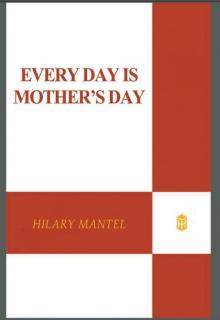 Every Day Is Mother's Day
Every Day Is Mother's Day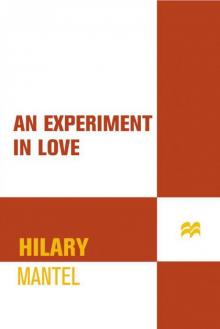 An Experiment in Love
An Experiment in Love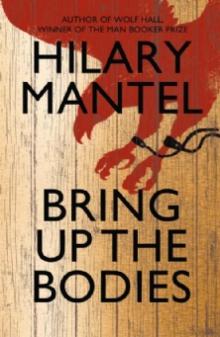 Wolf Hall
Wolf Hall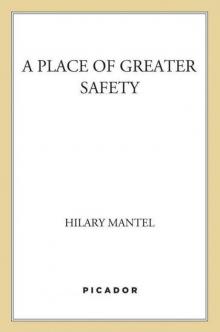 A Place of Greater Safety
A Place of Greater Safety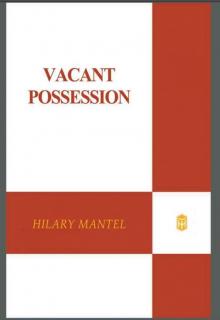 Vacant Possession
Vacant Possession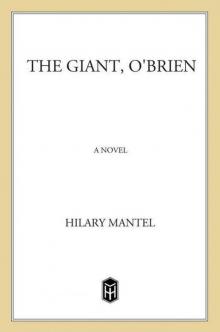 The Giant, O'Brien
The Giant, O'Brien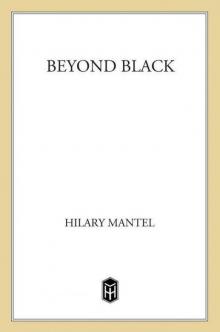 Beyond Black
Beyond Black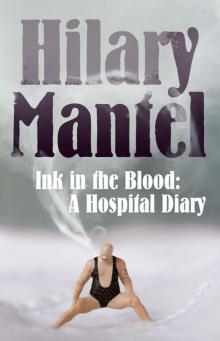 Ink in the Blood: A Hospital Diary
Ink in the Blood: A Hospital Diary The School of English
The School of English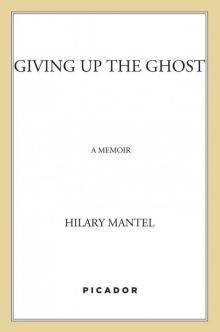 Giving Up the Ghost
Giving Up the Ghost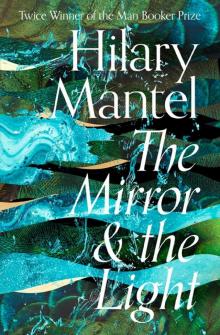 The Mirror and the Light: 2020’s highly anticipated conclusion to the best selling, award winning Wolf Hall series (The Wolf Hall Trilogy, Book 3)
The Mirror and the Light: 2020’s highly anticipated conclusion to the best selling, award winning Wolf Hall series (The Wolf Hall Trilogy, Book 3)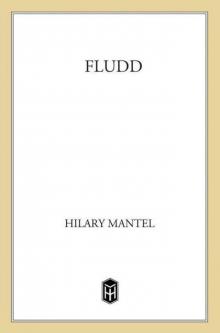 Fludd
Fludd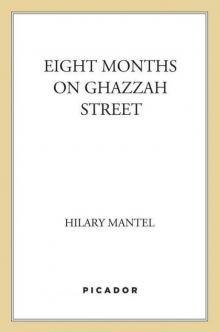 Eight Months on Ghazzah Street
Eight Months on Ghazzah Street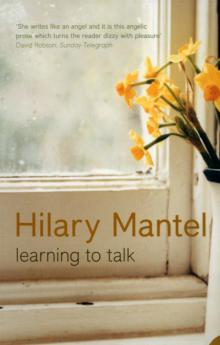 Learning to Talk
Learning to Talk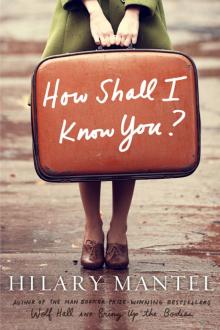 How Shall I Know You?: A Short Story
How Shall I Know You?: A Short Story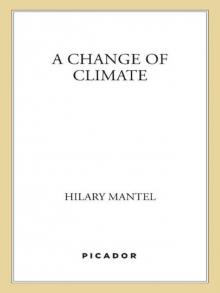 A Change of Climate
A Change of Climate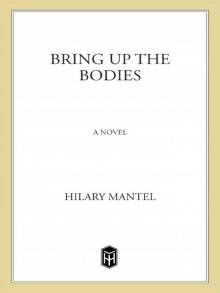 Bring Up the Bodies
Bring Up the Bodies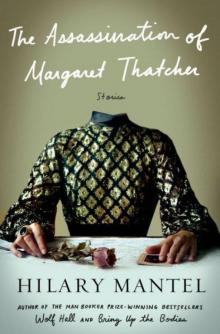 The Assassination of Margaret Thatcher: Stories
The Assassination of Margaret Thatcher: Stories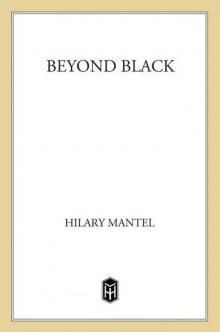 Beyond Black: A Novel
Beyond Black: A Novel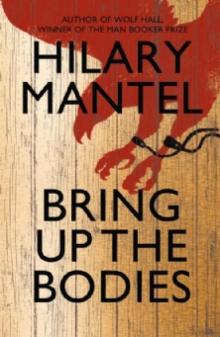 Wolf Hall: Bring Up the Bodies
Wolf Hall: Bring Up the Bodies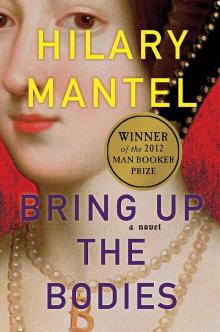 Bring Up the Bodies tct-2
Bring Up the Bodies tct-2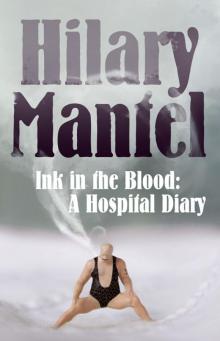 Ink in the Blood
Ink in the Blood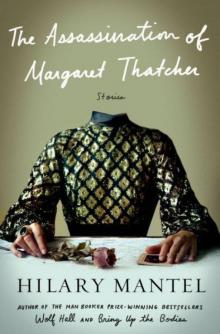 The Assassination of Margaret Thatcher
The Assassination of Margaret Thatcher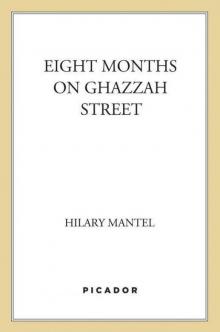 Eight Months on Ghazzah Street: A Novel
Eight Months on Ghazzah Street: A Novel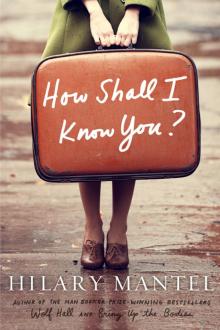 How Shall I Know You?
How Shall I Know You?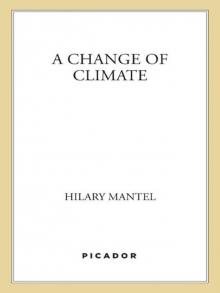 A Change of Climate: A Novel
A Change of Climate: A Novel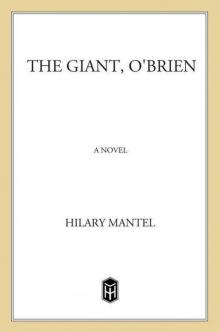 The Giant, O'Brien: A Novel
The Giant, O'Brien: A Novel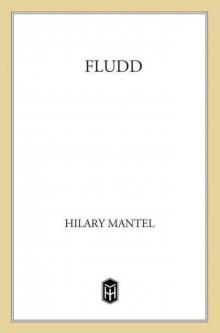 Fludd: A Novel
Fludd: A Novel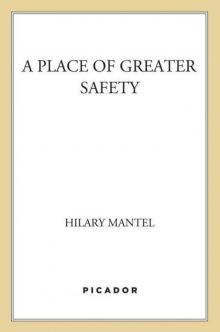 A Place of Greater Safety: A Novel
A Place of Greater Safety: A Novel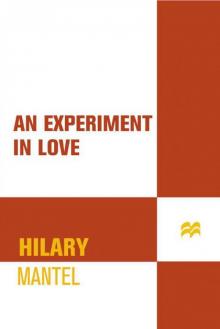 An Experiment in Love: A Novel
An Experiment in Love: A Novel